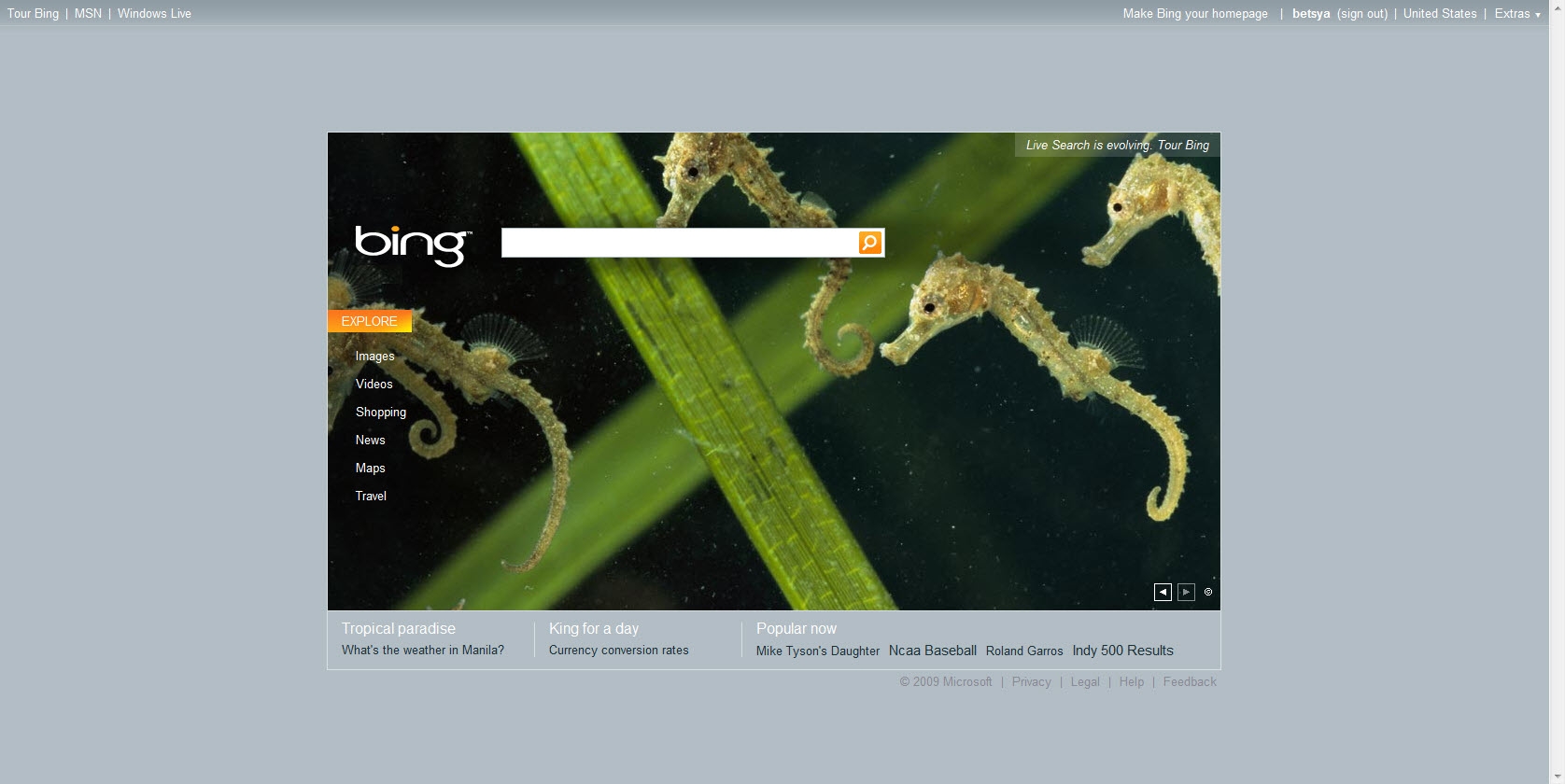Microsoft's Bing: Powerset's role, market share, brand (and other burning questions)

Microsoft rolled out Bing sort of---it won't be fully deployed until June 3---but questions already abound.
Here's a look at the top 10 questions surrounding Bing, Microsoft's so-called "decision engine." (statement, Techmeme,
1. Will Powerset's technology be the difference maker in Microsoft's quest to catch Google? At the D7 conference, Microsoft noted that Bing was built using the technology from Powerset, a search acquisition last year. Bing's goal: To understand pages and mine data.
2. Why does Microsoft have to preannounce a search engine? I was instantly frustrated when Microsoft's press released noted that Bing won't be fully available until June 3. If you're going to make a big splash it would help to actually let us try it live.
3. Is Microsoft trying to keep you stuck in Bing? This snippet between The Wall Street Journal's Walt Mossberg and Microsoft chief Steve Ballmer is telling:
Bing seems to be designed specifically to keep people on its search pages as opposed to sending them off to other sites. Is that what Microsoft is trying to do? Won’t this annoy content owners? Ballmer says no and adds that content deals are possible. “We’re not trying to get in the way of copyright holders,” he says. “If value should be redivided somehow between content providers, advertisers and search engines, let’s have that conversation. … we’re not trying to profit off of anyone else’s work.”
4. Is Bing the Ask.com sequel? Mossberg noted that Ask spent a lot of money rebranding, rolled out interesting new features and went nowhere. Ballmer said Bing won't be Ask, but does he really know. You can't will people to use a search engine.
5. Is Bing the right brand? Microsoft's search brands have gone through much iteration: MSN, Live and even side ventures like Ms. Dewey. The problem with Bing is that it's yet another Microsoft search rebrand. Is Bing really the keeper?
6. What's the role of natural language search? Ballmer was asked about natural language search, but Ballmer didn't reveal much. Go back to the site June 3.
7. Will Bing be differentiated enough to woo new users? Bing's pitch goes like this:
In a world of excessive choice and too much information, it’s often difficult to make the right decision. What you need is more than just a search engine; you need a decision engine that provides useful tools to help you get what you want fast, rather than simply presenting a list of Web links. Bing is such a decision engine. It provides an easy way to make more informed choices. It organizes popular results by category to help you get the answers you’re looking for without having to guess at the right way to formulate your query. And built right into Bing is a set of intelligent tools to help you accomplish important tasks such as buying a product, planning a trip or finding a local business.
Sounds great. But we're creatures of habit. Aside from that initial try is there enough to keep us coming back to Bing?
8. If Bing is successful will Yahoo or Google lose share? Forrester analyst Shar VanBoskirck reckons that Yahoo will lose share not Google.
9. Will Bing rivals mimic its interface? VanBoskirck writes:
Search engines have long been used as gateways to Web content. But as a decisioning engine, Bing introduces a search engine that actually delivers Web content without sending users away to other destination sites. A search for "airfare to Denver" shows available fares, pricing trends, a buy or wait recommendation, and a link to purchase. Since we expect other search engines to follow Bing's lead, this means marketers should expect increased costs for search and display ads. We also expect online media planners to adjust the sites where they buy. We expect consumers to frequent Bing (and other similar search engines in its wake) instead of other portals (Yahoo) and preferred destination sites.
VanBoskirck may be correct, but Bing will have to gain share to get other folks to follow.
10. Are we entering a golden age of search? Think about it: Bing, Google, Wolfram/Alpha and Yahoo's latest goodies. This game of search leapfrog could get interesting.